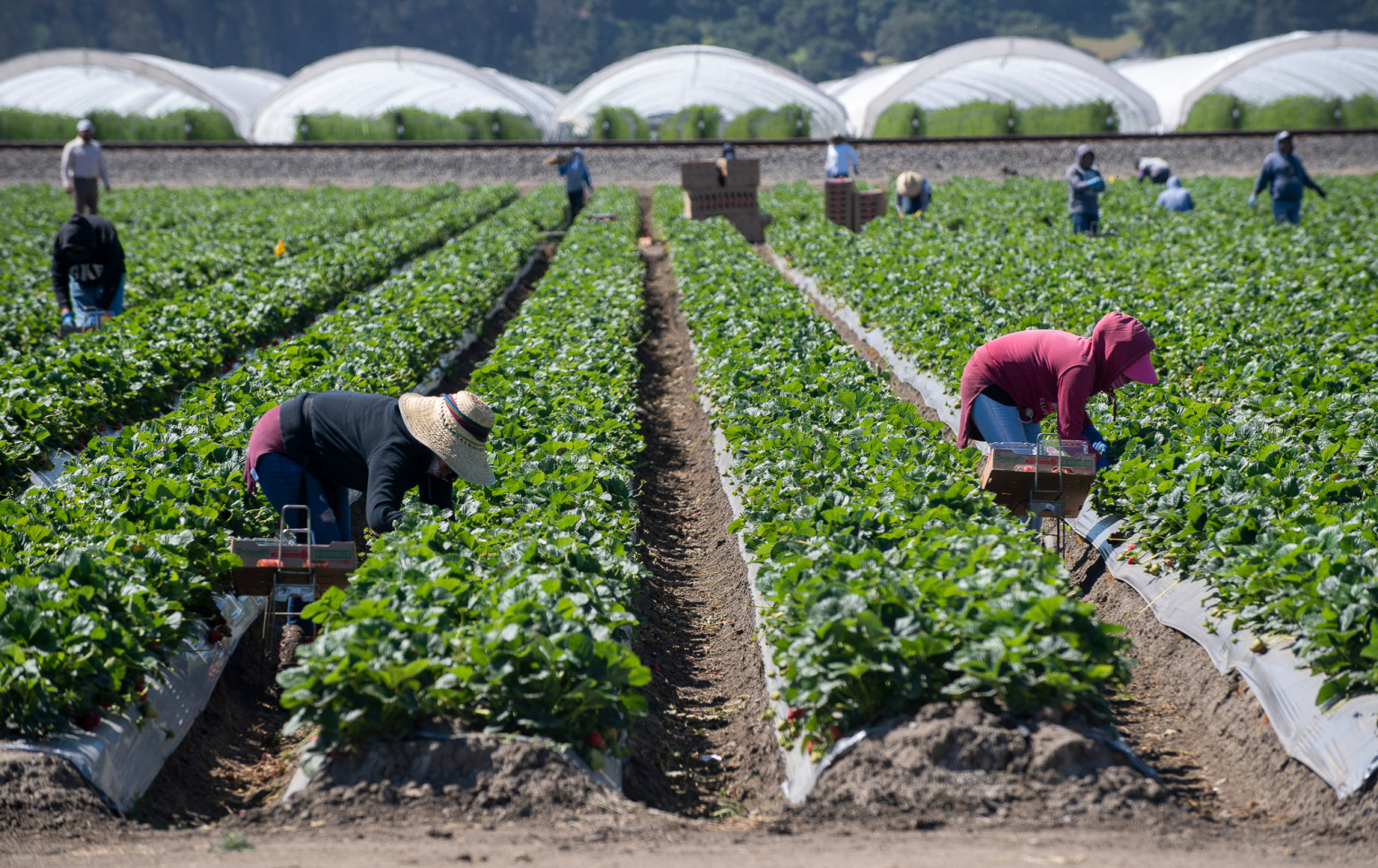The Johnson & Johnson shot was a ‘godsend’ for the most vulnerable. Now it may be hindering efforts to vaccinate them.

Reymundo Espinoza and his team were gearing up to administer 100 Johnson & Johnson COVID-19 vaccines to homeless downtown San Jose residents this week when news broke about possible blood clots associated with the shot.
“We had to cancel because they told us to not provide Johnson & Johnson,” Espinoza, CEO of Gardner Health Services, said.
Now, the one-dose-and-done vaccines one advocate called a “godsend” for farmworkers, homeless residents and other vulnerable communities — with impact far beyond the relatively small number of doses so far produced — are sitting in storage, waiting for a review by federal health authorities who will determine if it is safe.
That has thrown a wrench in efforts to vaccinate hard-to-reach residents who aren’t always easy to schedule, or even find, for a second appointment. Although the six reported cases of blood clots are extremely rare, the Tuesday suspension of the vaccine also re-energized safety concerns that health care workers and community leaders had spent months combatting among residents who often lack access to reliable information about health risks.
“We’re just concerned that they’re hesitating right now, and we hope it’s just a pause,” Espinoza said. “It took a lot of effort to educate people and get them to feel comfortable.”
The pause already is having an impact on public perception. An Economist/YouGov poll released Thursday showed the share of people who thought the company’s vaccine was safe dropped from 52 percent before the pause to 37 percent after.
The poll found no evidence that the announcement raised doubts about vaccines produced by Pfizer and Moderna, but Espinoza said he’s seeing an uptick in hesitancy across the board. At a regular clinic administering shots of Moderna at the Mexican Heritage Plaza in hard-hit East San Jose, staff usually administers 400 doses and has to turn away 200 or 300 people. On Thursday, they had to call businesses and organizations in the area and let them know they had open appointments because not enough people showed up.
News of the suspension has even caused concern among people who were eager to be vaccinated, such as Pacifica resident Victoria Sanchez De Alba, who was excited to find out she was getting the more convenient one-dose vaccine when she made her appointment for April 10 at the Oakland Coliseum. She’s one of at least 151,000 people in the Bay Area and 7.8 million nationally who have received the Johnson & Johnson vaccine.
Then she heard about six people reporting blood clots several days after receiving the vaccine.
“I was getting emotional. I was crying,” she said. “I went home, I drank tequila and I had some soup and I went to bed.”
Eventually, reading more about the minimal risk assuaged her fears, she said. But every day she gets an agonizing email to fill out a form detailing how she’s feeling.
Similar concerns led a group of seniors in a small town near Fresno to call Armando Valdez, founder and director of the Community Center for the Arts & Technology, which has been working to sign up farmworkers and their families for vaccines in the Central Valley.
“They signed up for the Johnson & Johnson two weeks ago, and they called me right away, and they said, ‘Is everything ok with what we got?’ ” Valdez said.
The development couldn’t have come at a worse time for efforts to vaccinate farmworkers, Valdez said. He’s been battling misinformation around the shots for months, answering questions about their safety and efficacy. He’s struggled to sign up people for appointments that are often far from farmworker communities, where many don’t have easy access to transportation or that require likewise scarce internet connectivity to register.
“The news with Johnson & Johnson, it’s making it a little bit harder for us to convince them it’s a good thing for them to take,” he said.
Johnson & Johnson vaccines represent just a small fraction of the doses being administered in California — it was only 4 percent of the state’s allotment this week, the Department of Public Health said in a statement earlier this week.
But they have an outsized impact on efforts to vaccinate vulnerable residents — in addition to the single dose, Johnson & Johnson doesn’t require the ultra-cold storage of other vaccines, making them easier to distribute to remote sites. Every dose that isn’t administered is one person who continues to be at risk for infection and death, said Christian Arana, vice president of policy at the Latino Community Foundation. The ease of transport and convenience of a single shot had been seen as a “godsend” for reaching farmworkers who tend to move with the harvest seasons.
Arana urged health and elected officials to quickly communicate whatever science-based decision is made about the vaccine to the farmworkers, or campesinos, who don’t have access to English-language mass media.
“The question is, how do you translate all that information to the campesinos because the campesinos don’t have cable news or MSNBC,” he said. “We also need equitable access to information about the vaccines and all the developments that have been happening.”
In the meantime, the pause has meant fewer shots getting in the arms of vulnerable residents. Valdez, in the Central Valley, had worked with the Fresno County health department to register 400 people to get the vaccine on April 20.
That event was canceled this week. He’s working on registering people for another one on April 27, this time for a shot of Moderna.

